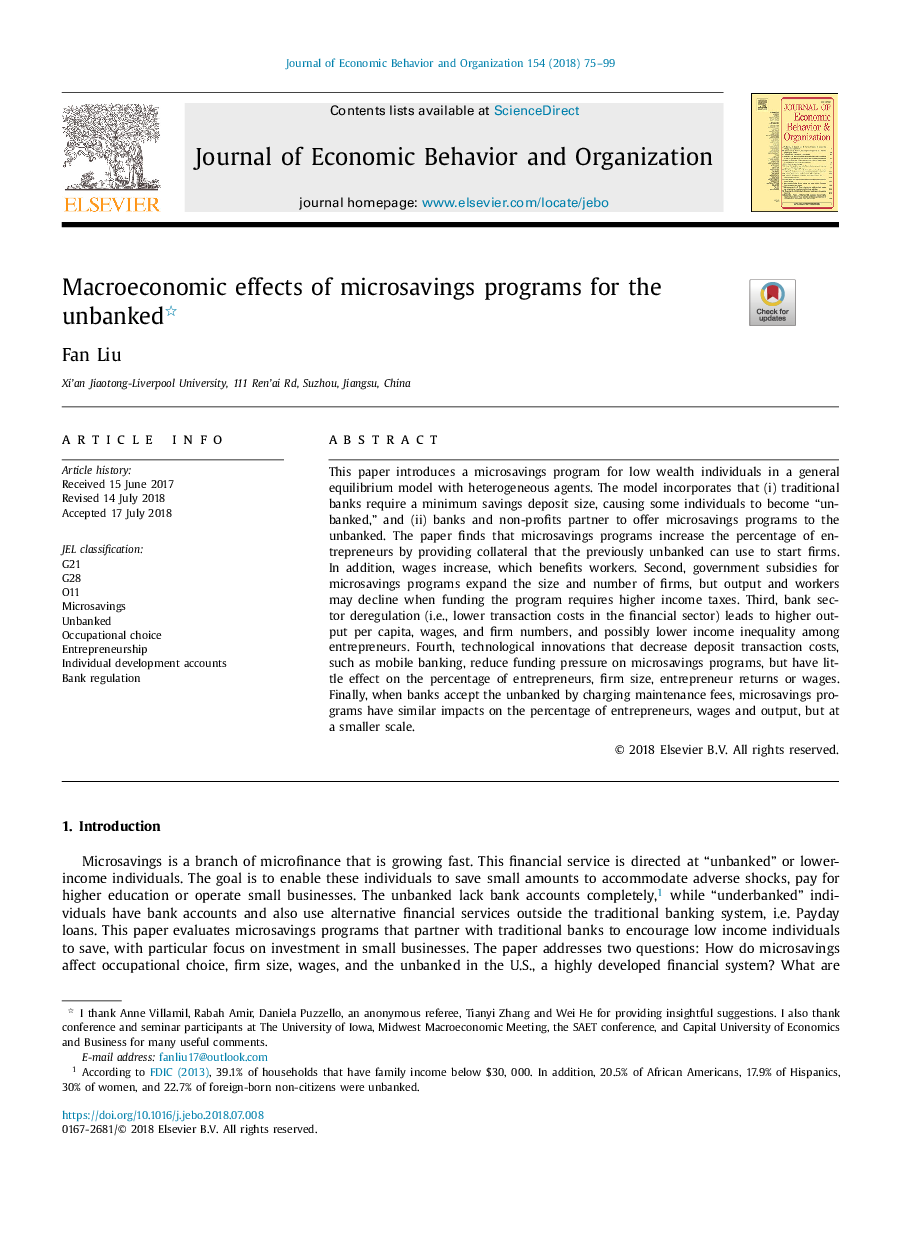| کد مقاله | کد نشریه | سال انتشار | مقاله انگلیسی | نسخه تمام متن |
|---|---|---|---|---|
| 8942210 | 1645062 | 2018 | 25 صفحه PDF | دانلود رایگان |
عنوان انگلیسی مقاله ISI
Macroeconomic effects of microsavings programs for the unbanked
ترجمه فارسی عنوان
اثرات اقتصاد کلان برنامه های پیشگیرانه برای افراد غیر بانکی
دانلود مقاله + سفارش ترجمه
دانلود مقاله ISI انگلیسی
رایگان برای ایرانیان
کلمات کلیدی
موضوعات مرتبط
علوم انسانی و اجتماعی
اقتصاد، اقتصادسنجی و امور مالی
اقتصاد و اقتصادسنجی
چکیده انگلیسی
This paper introduces a microsavings program for low wealth individuals in a general equilibrium model with heterogeneous agents. The model incorporates that (i) traditional banks require a minimum savings deposit size, causing some individuals to become “unbanked,” and (ii) banks and non-profits partner to offer microsavings programs to the unbanked. The paper finds that microsavings programs increase the percentage of entrepreneurs by providing collateral that the previously unbanked can use to start firms. In addition, wages increase, which benefits workers. Second, government subsidies for microsavings programs expand the size and number of firms, but output and workers may decline when funding the program requires higher income taxes. Third, bank sector deregulation (i.e., lower transaction costs in the financial sector) leads to higher output per capita, wages, and firm numbers, and possibly lower income inequality among entrepreneurs. Fourth, technological innovations that decrease deposit transaction costs, such as mobile banking, reduce funding pressure on microsavings programs, but have little effect on the percentage of entrepreneurs, firm size, entrepreneur returns or wages. Finally, when banks accept the unbanked by charging maintenance fees, microsavings programs have similar impacts on the percentage of entrepreneurs, wages and output, but at a smaller scale.
ناشر
Database: Elsevier - ScienceDirect (ساینس دایرکت)
Journal: Journal of Economic Behavior & Organization - Volume 154, October 2018, Pages 75-99
Journal: Journal of Economic Behavior & Organization - Volume 154, October 2018, Pages 75-99
نویسندگان
Fan Liu,
